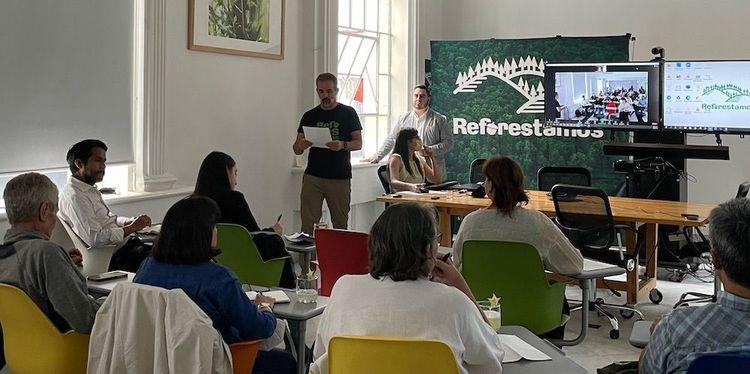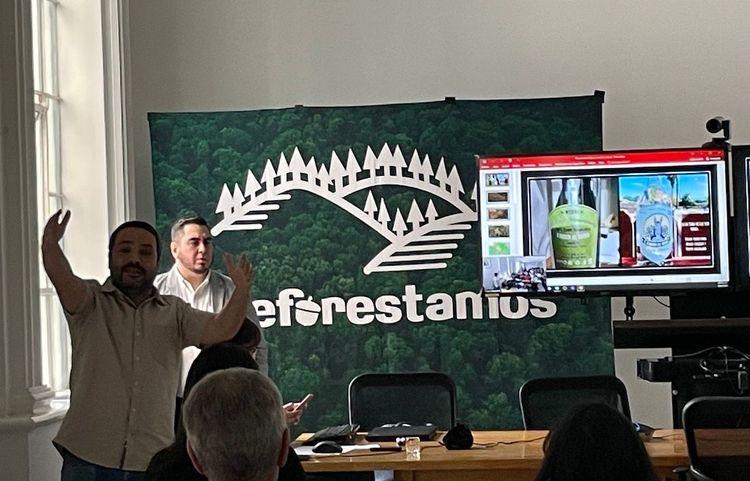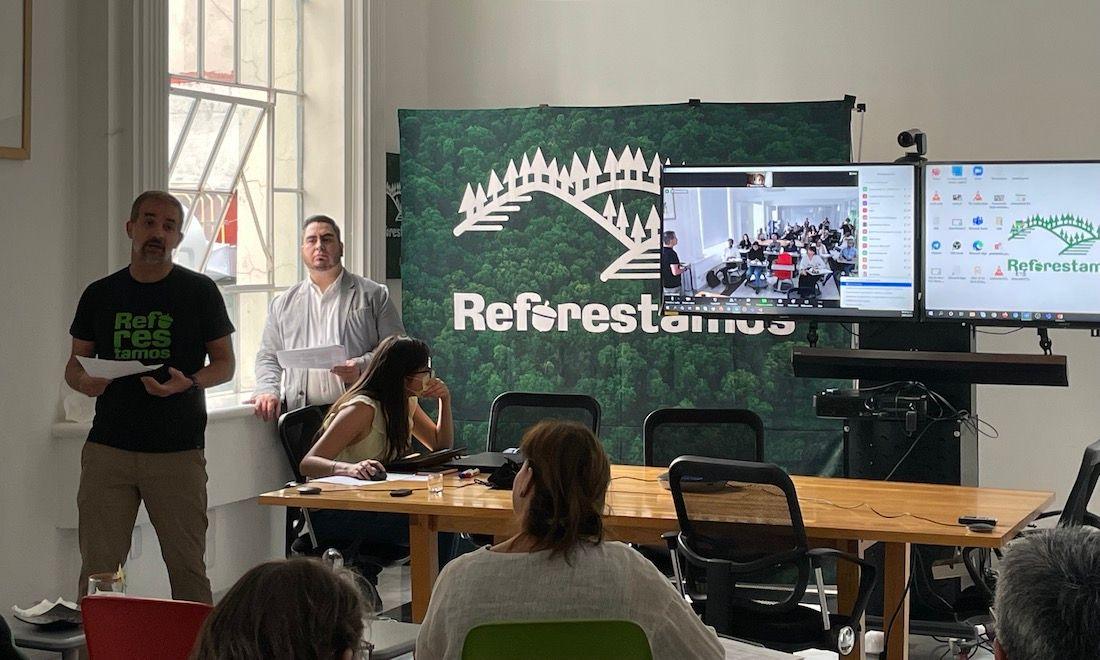Civil society organizations highlighted the importance of accessing and using public information during the event “Mezcal and Ceviche for the Transparency of Natural Resources”, held on the night of May 26 at the facilities of Reforestamos Mexico.
“Sometimes, if we see it raw, information doesn't mean much, but if we start to cross the databases we can get a lot of information that can analyze factors such as corruption, inequity, environmental damage... information is key, even not obtaining it expresses a vacuum and a social problem,” said Eduardo Rolón, director of Causa Natura.
The director pointed out that problems have arisen with regard to access to information in the major works of the current six-year period, when having that knowledge could be key to the communities' reaction.
At the event organized by the civil organizations Reforestamos México, Causa Natura, CartoCrítica, the Fund for Communication and Environmental Education; and the Heinrich Böll Foundation, the importance of evaluation tools such as the Natural Resources Transparency Index, which includes the forest, fishing and water sectors, was highlighted.
“Finally, natural resources share the same problems because they are commonly used, and we wanted to address them in a comprehensive way,” said Harumi Hayashida, Coordinator of the Public Policy Unit of the civil organization Causa Natura.
The ITRN uses a metric for public information regarding natural resources, in which 0 is the lowest value and 1 is the best possible value. The general evaluation of the results published in 2020 - which reflected data from a previous year - was 0.29 and in the 2021 publication, this indicator rose to 0.52.
“We had good results but we still need more, it's not enough that the information is there, we want it to be used,” Hayashida said.
The Index has become an Open Government commitment, as part of the fourth action plan, which will end in August of this year. However, monitoring groups have been created, participatory spaces where government, civil society and academia discuss the transparency of public information in the three corresponding sectors covered by the index, explained the coordinator.

Ernesto Herrera, director of Reforestamos Mexico. Photo: Juan García
Mezcales to understand natural resources
During the event, the location and use of databases were announced to journalists, in order to promote that transparency is not alien to society, but a necessary practice.
For a sample, a mezcal. “It is a product that relates to the forest and the entire forest part, this particular mezcal grows in a pine-oak ecosystem,” said Emilio Cruz, director of Alliances for Advocacy at Reforestation Mexico A.C.
The case of a mezcal lechuguilla Agave inaequedis made in Cañada del Agua Indaparapeo, Michoacán, served as a reference to understand that public data offers us tools to identify deforested areas over the years.
“It's too little and then they stopped. How has this community managed to control what has happened in their region?” , questioned the public by Manuel Llano, director of the organization CartoCrítica.
Through the data, it was possible to know the polygons that have had support from Conafor for forest restoration. “All these polygons applied to this small polygon are actually available for the entire country,” he added.
A second case was exemplified with download data. Currently, data on more than 250 water quality indicators are available from the National Water Commission (Conagua), whose data provide an overview of the permissible limits of water quality, threatened by substances such as arsenic.

Manuel Llano, director of CartoCrítica. Photo: Juan García
“In the mezcal area we don't have data with arsenic, but in the rest of the country we do; and we can know these data for each year, each site and the volume,” Llano said.
Arsenic can cause a variety of diseases, including cancer. The specialist explained that the mineral occurs naturally in deep aquifers, however, the problem of resource hoarding has led to a need to extract water at greater depths.
Overfishing
In his participation, Javier Van Cauwelaert, commercial director of Smartfish, the only marketer in Mexico dedicated to selling exclusively sustainably sourced fish and seafood, emphasized the importance of data in understanding the magnitude of the problems that afflict fishing, such as overexploitation.
“In the supermarket we see an overabundance of fish, however, from 1994 to date, the volume of fishing has not increased, but the fishing effort has tripled. In other words, the number of boats and fishermen has grown threefold and they are still fishing the same number,” said Van Cauwelaert.
The specialist highlighted that both in Mexico and in the rest of the world, 80% of species suffer from overexploitation. At the same time, artisanal fishing represents 95% of the workforce in the sector and 40% is below poverty levels.
“They fish a lot, and they can't even live on what they catch, why, because they were paid so little. They can sometimes receive up to 7.5 pesos per kilo of fish on the beach and that doesn't pay for the fishing trip,” said Van Cauwelaert.
The director pointed out that through a civil association they work hand in hand with artisanal cooperatives in Mexico to break limited market access and to provide a better product that obtains better prices. A virtuous cycle that helps to avoid overexploitation.
“You have to do a lot of work from the start, which is what civil associations do, changing fishing practices, using fishing gear that allows them to be more selective, that doesn't harm ecosystems,” said the director of SmartFish.
What's next?
The organizing organizations of the event announced to the press in general their willingness to apply to a support fund. An incentive that seeks to support journalistic investigations that are based on public data that are the result of transparency.



Comentarios (0)